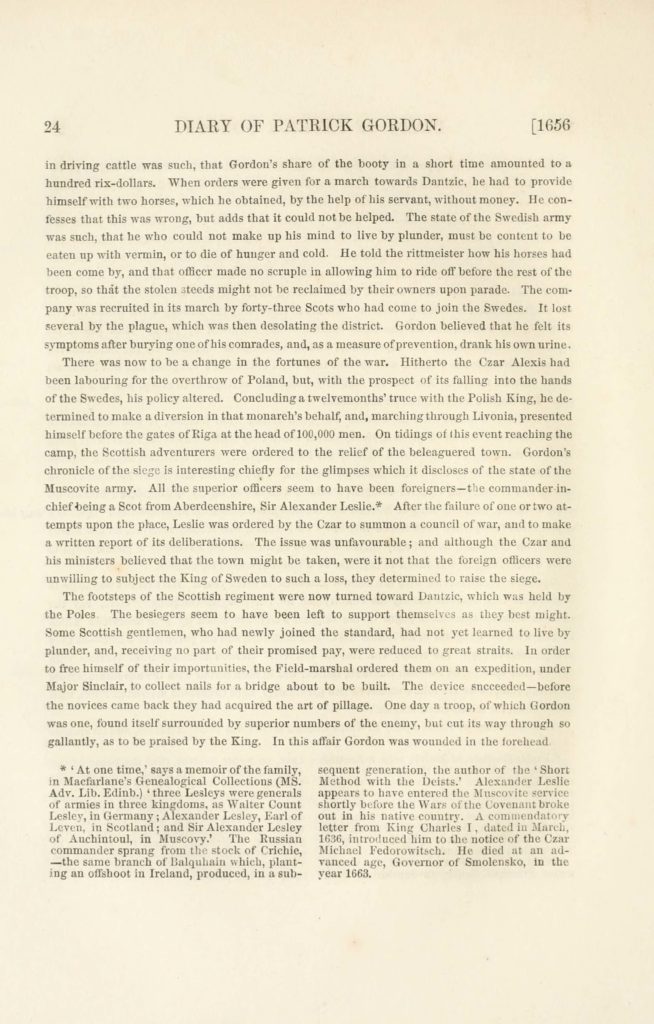
Related

160 DIARY OF PATRICK GORDON. [1686 been represented to her
![1686] DIARY OF PATRICK GORDON. 121 wee hyred fresh horses, haveins](https://cdn2.picryl.com/thumbnail/1699/12/31/1686-diary-of-patrick-gordon-121-wee-hyred-fresh-horses-haveins-cdd0b7-200.jpeg)
1686] DIARY OF PATRICK GORDON. 121 wee hyred fresh horses, haveins
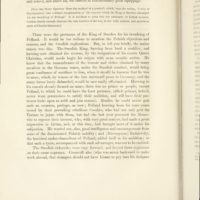
20 DIARY OF PATRICK GORDON. [1655 men with a gallant traine of artillery. It was a most delighttull
![1696] DIARY OF PATRICK GORDON. 185 for a just cause is rewarded](https://cdn2.picryl.com/thumbnail/1699/12/31/1696-diary-of-patrick-gordon-185-for-a-just-cause-is-rewarded-d5c23a-200.jpeg)
1696] DIARY OF PATRICK GORDON. 185 for a just cause is rewarded
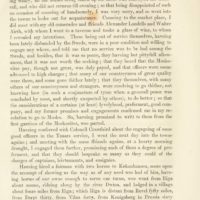
42 DIARY OF PATRICK GORDON. [1661 misfortune
![1686] DIARY OF PATRICK GORDON. 125 stuiver. From thence to Workum](https://cdn2.picryl.com/thumbnail/1699/12/31/1686-diary-of-patrick-gordon-125-stuiver-from-thence-to-workum-0ef529-200.jpeg)
1686] DIARY OF PATRICK GORDON. 125 stuiver. From thence to Workum
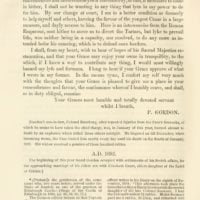
174 DIARY OF PATRICK GORDON. [1692 be restored. As for Harie Gordon

122 DIARY OF PATRICK GORDON. [1686 flesh was torren out of their armes
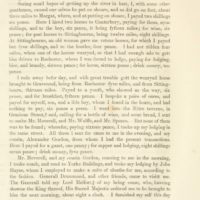
126 DIARY OF PATRICK GORDON. [1686 religion* At night wee cast anchor
24 DIARY OF PATRICK GORDON. [1656 in driving cattle was such
Summary
Passages from the diary of General Patrick Gordon of Auchleuchries : A.D. 1635-A.D. 1699"
24 DIARY OF PATRICK GORDON. [1656
in driving cattle was such, that Gordon's share of the booty in a short time amonnted to a
hundred rix-dollars. "When orders were given for a march towards Dantzic, he had to provide
himself with two horses, which he obtained, by the help of his servant, without money. He con-
fesses that this was wrong, but adds that it could not be helped. The state of the Swedish army
was such, that he who could not make up his mind to live by plunder, must be content to be
eaten up with vermin, or to die of hunger and cold. He told the rittmeister how his horses had
been come by, and that ofiScer made no scruple in allowing him to ride off before the rest of the
troop, so that the stolen steeds might not be reclaimed by their owners upon parade. The com-
pany was recruited in its march by forty- three Scots who had come to join the Swedes. It lost
several by the plague, which was then desolating the district. Gordon believed that he felt its
symptoms after burying one of his comrades, and, as a measure of prevention, drank his own urine.
There was now to be a change in the fortunes of the war. Hitherto the Czar Alexis had
been labouring for the overthrow of Poland, but, with the prospect of its falling into the hands
of the Swedes, his policy altered. Concluding a twelvemonths' truce with the Polish King, he de-
termined to make a diversion in that monarch's behalf, and, marching through Livonia, presented
himself before the gates of Riga at the head of 100,000 men. On tidings of this event reaching the
camp, the Scottish adventurers were ordered to the relief of the beleaguered town. Gordon's
chronicle of the siege is interesting chiefly for the glimpses which it discloses of the state of the
Muscovite army. All the superior officers seem to have been foreigners— the commander in-
chief being a Scot fi'om Aberdeenshire, Sir Alexander Leslie.* After the failure of one or two at-
tempts upon the place, Leslie was ordered by the Czar to summon a council of war, and to make
a written report of its deliberations. The issue was unfavourable ; and although the Czar and
his ministers believed that the town might be taken, were it not that the foreign officers were
unwilling to subject the King of Sweden to such a loss, they determined to raise the siege.
The footsteps of the Scottish regiment were now turned toward Dantzic, which was held by
the Poles The besiegers seem to have been left to support themselves as they best might.
Some Scottish gentlemen, who had newly joined the standard, had not yet learned to live by
plunder, and, receiving no part of their promised pay, were reduced to great straits. In order
to free himself of their importunities, the Field-marshal ordered them on an expedition, under
Major Sinclair, to collect nails for a bridge about to be built. The device sncceeded— before
the novices came back they had acquired the art of pillage. One day a troop, of which Gordon
was one, found itself surrounded by superior numbers of the enemy, but cut its way through so
gallantly, as to be praised by the King. In this afi"air Gordon was wounded in the forehead.
* ' At one time,' says a memoir of the family, sequent generation, the author of the ' Short
in Macfarlane's Genealogical Collections (MS. Method with the Deists.' Alexander Leslie
Adv. Lib. Edinb.) ' three Lesleys were generals appears to have entered the Muscovite service
of armies in three kingdoms, as Walter Count sliortly before the Wars of the Covena)U broke
Lesley, in Germany ; Alexander Lesley, Earl of out in his native country. A commendatory
Leven, in Scotland ; and Sir Alexander Lesley letter from King Charles I, dated in March,
of Auchintoul, in Muscovy.' The Russian lfi36, intioduced him to the notice of the Czar
commander sprang from the stock of Crichie, Michael Fedorowitsch. He died at an ad-
— the same branch of lialquliain which, plant- vanced age, Governor of Smolcnsko, in the
ing an oflshoot in Ireland, produced, in a sub- year 1663.
Gordon was brought up and remained a lifelong Roman Catholic, at a time when the Church was being persecuted in Scotland. At age of fifteen, he entered the Jesuit college at Braunsberg, East Prussia, then part of Poland. In 1661, after many years experiences as a soldier of fortune, he joined the Russian army under Tsar Aleksei I, and in 1665 was sent on a special mission to England. After his return, he distinguished himself in several wars against the Turks and Tatars in southern Russia. In recognition of his service he was promoted to major-general in 1678, was appointed to the high command at Kiev in 1679, and in 1683 was made lieutenant-general. In 1687 and 1689 he took part in expeditions against the Tatars in the Crimea, being made a full general. Later in 1689, a revolution broke out in Moscow, and with the troops under his command, Gordon virtually decided events in favor of Peter the Great against the Regent, Tsarevna Sophia Alekseyevna. Consequently, he was for the remainder of his life in high favor with the Tsar, who confided to him the command of his capital during his absence from Russia. In 1696, Gordon's design of a "moveable rampart" played a key role in helping the Russians take Azov. One of Gordon's convinced the Tsars to establish the first Roman Catholic church and school in Muscovy, of which he remained the main benefactor and headed the Catholic community in Russia until his death. For his services his second son James, brigadier of the Russian army, was created Count of the Holy Roman Empire in 1701. At the end of his life the Tsar, who had visited Gordon frequently during his illness, was with him when he died, and with his own hands closed his eyes. General Gordon left behind him a uniquely detailed diary of his life and times, written in English. This is preserved in manuscript in the Russian State Military Archive in Moscow. Passages from the Diary of General Patrick Gordon of Auchleuchries (1635–1699) was printed, under the editorship of Joseph Robertson, for the Spalding Club, at Aberdeen, Scotland, 1859.
Nothing Found.
